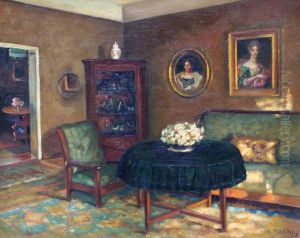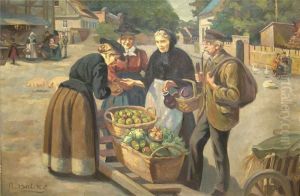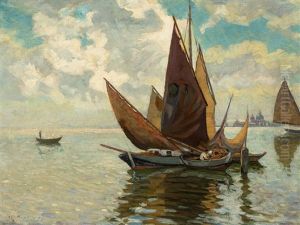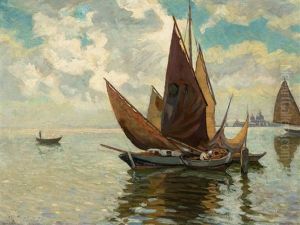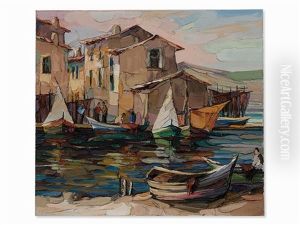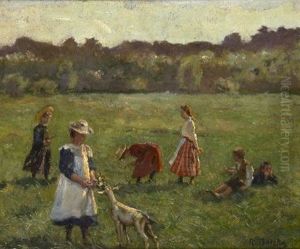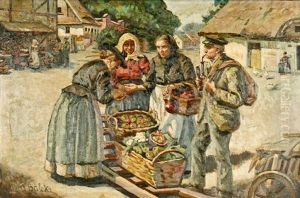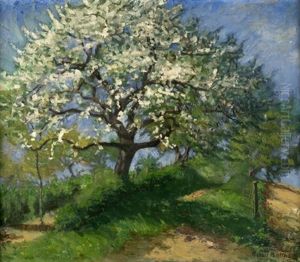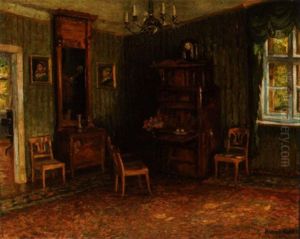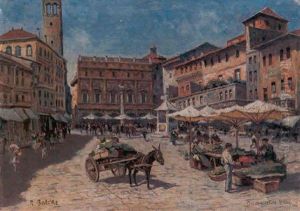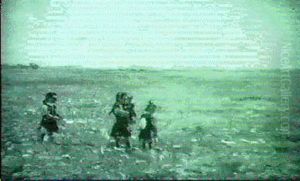Robert Balcke Paintings
Robert Balcke was a German painter and graphic artist born on September 1, 1883, in Dresden, Germany. His work is often associated with the later phases of Impressionism, capturing the transitional period in German art where traditional techniques began to give way to more modernist impulses. Balcke's early life was steeped in an environment rich with artistic tradition, Dresden being a hub for cultural and artistic expression in Germany at the time. This environment undoubtedly influenced his decision to pursue a career in the arts.
Balcke received his formal art education at the Dresden Academy of Fine Arts, where he was exposed to a wide range of artistic styles and techniques. His education there was foundational, equipping him with the skills and sensibilities that would characterize his later work. After completing his studies, he immersed himself in the artistic scene of Dresden and later Berlin, which were both centers for avant-garde art in the early 20th century. His work during this period began to exhibit the impressionistic style that he is known for, with a particular focus on landscapes and urban scenes. His paintings often captured the ephemeral effects of light and atmosphere, imbuing his scenes with a sense of immediacy and vitality.
Throughout his career, Balcke remained somewhat peripheral to the major movements that dominated German art in the first half of the 20th century, such as Expressionism and Dada. Instead, he carved out a niche for himself within the more traditional genre of landscape painting, albeit with a modern twist. His landscapes are noted for their dynamic use of color and brushwork, qualities that align him with Impressionism even as he maintained a distinct, personal style.
Despite the challenges posed by two World Wars and the changing landscape of the art world, Balcke continued to produce and exhibit his work throughout his life. He remained in Germany during these tumultuous years, a decision that impacted his career in various ways. The rise of the Nazi regime and its restrictive policies on art marked a particularly difficult period for Balcke, as it did for many artists of the time. His ability to navigate these challenges, however, speaks to his resilience and dedication to his art.
Robert Balcke died on October 16, 1947, in Dresden. Although he never achieved the level of fame as some of his contemporaries, his work has been recognized for its contribution to German Impressionism and is appreciated for its unique perspective on the landscape genre. Today, his paintings can be found in various collections and museums, serving as a testament to his skill and artistic vision.
